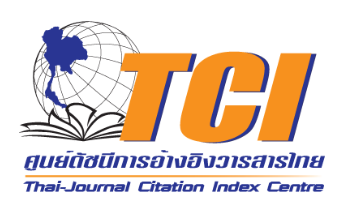Building Resilient Green Value Chain: A Hierarchical Model for Thai Food Industry Sustainable Transformation
DOI:
https://doi.org/10.69650/jcdrhs.2025.1084Keywords:
Green Value Chain, Sustainability, Thai Food Industry, SMEs, Hierarchical Model, AHP, Sustainable Leadership, BCG Economy, Green Networks, Ethnographic Delphi Futures Research (EDFR)Abstract
This study presents an innovative hierarchical model for implementing sustainable green management strategies in Thailand’s food industry SMEs. The research employs a novel methodological approach combining Ethnographic Delphi Futures Research (EDFR) with Analytic Hierarchy Process (AHP), uniquely integrating participatory stakeholder engagement with rigorous quantitative prioritization. This sequential mixed-methods design produces contextually rich yet quantitatively robust findings, addressing limitations of conventional sustainability research that treats success factors independently. Data were collected from 17 key informants representing government, academia, industry, and consumers across three phases. The findings reveal six interconnected strategic components: Sustainable Leadership (38.6%), Green Networks (17.5%), Sustainable Supply Chain Management (16.2%), Corporate Social Responsibility (13.2%), Government Support (7.6%), and Innovation and Digital Technology (6.8%). Critically, these components function as an interconnected system with reinforcing relationships rather than independent factors, explaining why isolated sustainability initiatives often fail. The model advances theoretical understanding by demonstrating leadership and cultural factors’ primacy over technical approaches, while providing actionable implementation guidance. Organizations should follow a phased transformation emphasizing leadership commitment before technical investments. For policymakers, findings recommend reorienting support mechanisms toward: 1) sustainability leadership training programs for SME executives, 2) collaborative network facilitation among food SMEs and suppliers, and 3) integrated support packages addressing cultural transformation alongside technical assistance. This approach directly supports Thailand 4.0 objectives to ensure national economic transformation reaches all enterprise scales.
References
Abdul-Azeez, O., Ihechere, A. O., & Idemudia, C. (2024). Transformational Leadership in SMEs: Driving Innovation, Employee Engagement, and Business Success. World Journal of Advanced Research and Reviews, 22(3), 1894-1905. https://doi.org/10.30574/wjarr.2024.22.3.1888
Al-Ghazali, B. M., Gelaidan, H. M., Shah, S. H. A., & Amjad, R. (2022). Green Transformational Leadership and Green Creativity? The Mediating Role of Green Thinking and Green Organizational Identity in SMEs. Frontiers in Psychology, 13, 977998. https://doi.org/10.3389/fpsyg.2022.977998
ASEAN Secretariat. (2021). ASEAN State of Climate Change Report: Current Status and Outlook of the ASEAN Region Toward the ASEAN Climate Vision 2050. Jakarta, Indonesia: ASEAN Secretariat. Retrieved from https://asean.org/book/asean-state-of-climate-change-report/
Chaosuan, M. (2002). A Model for Selecting Interchange Types Using Analytical Hierarchy Process (Master’s Thesis). Chiang Mai University, Chiang Mai. Retrieved from https://cmudc.library.cmu.ac.th/frontend/Info/item/dc:100132
Durrani, N., Raziq, A., Mahmood, T., & Khan, M. R. (2024). Barriers to Adaptation of Environmental Sustainability in SMEs: A Qualitative Study. PLoS ONE, 19(5), e0298580. https://doi.org/10.1371/journal.pone.0298580
Food Intelligence Center. (2023). Info Graphic Snap Shot: Thailand Food Industry Profile 2022. Retrieved from https://fic.nfi.or.th/infographic-detail.php?id=84
Janchaipoom, P. (2024). Thailand’s Greenhouse Gas Emissions and Sequestration. Office of Natural Resources and Environmental Policy and Planning. Retrieved from https://www.onep.go.th/open-data-greenhouse-gas/
Köhler, J., Geels, F. W., Kern, F., Markard, J., Onsongo, E., Wieczorek, A., … Wells, P. (2019). An Agenda for Sustainability Transitions Research: State of the Art and Future Directions. Environmental Innovation and Societal Transitions, 31, 1-32. https://doi.org/10.1016/j.eist.2019.01.004
Macmillan, T. T. (1971). The Delphi Technique. In Annual Meeting of the California Junior Colleges Association Committee on Research and Development, Monterey, California, May 3-5, 1971. Retrieved from https://eric.ed.gov/?id=ED064302
Saaty, T. L. (1980). The Analytic Hierarchy Process. New York: McGraw-Hill.
Saenchaiyathon, K., & Wongthongchai, J. (2021). Green Operation Strategy for SMEs: Agri-food Business Thailand Case Study. TEM Journal, 10(4), 1803-1812. https://doi.org/10.18421/TEM104-43
Tansirikongkol, W. (1999). AHP: The World’s Most Popular Decision-making Process. Bangkok: Graphic & Printing Center.
Downloads
Published
How to Cite
Issue
Section
License
Copyright (c) 2025 Journal of Community Development Research (Humanities and Social Sciences)

This work is licensed under a Creative Commons Attribution 4.0 International License.









